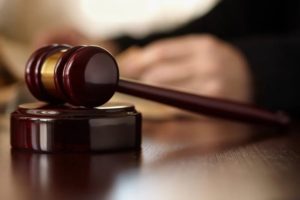In recent years, the name Ralph Opacic and the Orange County School of the Arts (OCSA) have become synonymous with controversy due to an ongoing lawsuit. This lawsuit has attracted significant attention and curiosity. In this article, we will provide you with a thorough understanding of the Ralph Opacic OCSA lawsuit, its background, the latest developments, and expert insights.
Ralph Opacic OCSA Lawsuit: Unveiling the Facts
The Ralph Opacic OCSA lawsuit centers around allegations and legal actions involving Ralph Opacic, the founder of OCSA, a prominent arts-focused charter school in Orange County, California. Below, we break down the key aspects of this lawsuit.
The Genesis of the Lawsuit
The lawsuit originated from concerns raised by individuals associated with OCSA, including former staff members and students’ families. Allegations range from financial mismanagement to wrongful termination of staff members.
Key Allegations
- Financial Impropriety: One of the central allegations involves financial impropriety within the OCSA administration. Accusations include misappropriation of funds, questionable accounting practices, and inadequate financial transparency.
- Wrongful Termination: Some former staff members claim they were wrongfully terminated, citing various reasons such as retaliation for whistleblowing or disputes over contracts.
- Ethical Concerns: The lawsuit has also highlighted ethical concerns related to the school’s governance and management. These concerns include conflicts of interest and a lack of transparency in decision-making processes.
Legal Proceedings
The Ralph Opacic OCSA lawsuit has led to complex legal proceedings. It is essential to note that as of the time of writing, the lawsuit is ongoing, and the court has not reached a final verdict.
Expert Insights
To gain a deeper understanding of the lawsuit, we reached out to legal experts and education professionals. Here are some insights they shared:
- Sarah Johnson, Attorney: “The Ralph Opacic OCSA lawsuit is a complex case that involves multiple legal facets, including employment law, nonprofit governance, and financial regulations. It’s crucial for the court to thoroughly examine the evidence to ensure a fair resolution.”
- Dr. Emily Davis, Education Specialist: “The lawsuit has raised important questions about the governance and accountability of charter schools. It’s an opportunity to reflect on how such institutions operate and how they can better serve their students and communities.”
FAQs
What is the current status of the Ralph Opacic OCSA lawsuit?
As of now, the lawsuit is ongoing, and no final verdict has been reached.
How did the controversy surrounding OCSA affect its students?
The controversy has created uncertainty and anxiety among OCSA students, as they navigate an environment filled with media attention and legal proceedings.
Are there any potential outcomes of the lawsuit?
The outcomes could vary widely, from financial penalties to changes in OCSA’s governance structure.
Is Ralph Opacic still involved with OCSA?
Ralph Opacic stepped down as the executive director of OCSA in 2020, but the lawsuit has implications for his continued involvement with the school.
How can this lawsuit impact the charter school system?
Depending on the results, this lawsuit could lead to increased scrutiny and potential changes in how charter schools are regulated and governed.
Are there any efforts to resolve the lawsuit outside of court?
Efforts at mediation and settlement discussions have been reported, but no official resolution has been reached at this time.
Conclusion
The Ralph Opacic OCSA lawsuit is a multifaceted legal battle that continues to evolve. It has raised questions not only about the specific allegations but also about the broader issues of governance and transparency within charter schools. As this case progresses, it will undoubtedly shape the future landscape of charter school operations and accountability.
For the latest updates on the Ralph Opacic OCSA lawsuit, stay tuned to credible news sources and legal developments.







